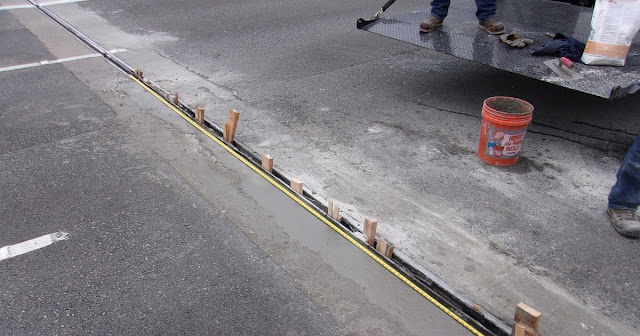When Do You Need Concrete Expansion Joint Repair?
Substantial pieces are utilized for surfaces, for example, carports, porches, walkways, or floors in a parking structure.
Since concrete grows and agreements with temperature changes, holes are given to permit to this development.
Holes will be loaded up with some adaptable item, yet over the long haul these corrupt, making substantial development joint fix fundamental.
Why Are Expansion Joints Needed?
Chunks of cement are poured with spaces of 1/2 to 3/4 inch between them for extension, later loaded up with an elastomer that can twist, like wood, elastic, or caulking.
Leaving the hole void is terrible in light of the fact that water can run under the chunks, disintegrating the dirt underneath, prompting pressure and breaking of the section.
In the event that the hole loads up with sand or soil, extension is compromised on the grounds that sand additionally extends with warmth, and roots develop and break the encompassing cement.
Step by step instructions to Know When You Need Concrete Expansion Joint Repair
A cautious visual investigation is sufficient to decide whether the joint fillings are exhausted and need substitution.
Wood decays; elastic disintegrates; caulking can be eroded or separate because of enduring.
On the off chance that the extension holes are not loaded up with the adaptable material, there is an issue that should be revised.
What Is Involved In Correcting The Situation?
The old elastomer should be taken out, and new material embedded in the hole.
A choice should be made with regards to what kind of filler will be utilized as a substitution.
This sounds sufficiently basic, and numerous mortgage holders take on the actual undertaking, yet there are some valid justifications why it is desirable over bring in an expert for substantial extension joint fix.
What Are The Choices of Materials?
A few kinds of items are accessible for development joint substitution:
- wood-cedar or redwood are best, not hardwoods like maple
- polyurethane, butyl, silicone, tri-polymer, polysulfide, or acrylic sealant in cylinders or tubs (for wide breaks)
- shut cell froth stripping
- elastic covers with metal ribs
Patron bar should be put at the lower part of the break for evening out and steadiness.
This is a roundabout or D-molded "rope" made of:
- shut cell froth for typical establishments
- open cell froth for hot-poured fillers
Visit Following Links:
https://www.hitabs.com/PtXKYJAa
https://tuffsocial.com/dp-pavingny/
https://cm-ss13.com/forums/member.php?5718-MaryHouston
http://www.alcohol-injection.com/forum/members/maryhouston.html
http://kamikaze-club.de/phpBB2/profile.php?mode=viewprofile&u=41682
http://pieces.deadsunrise.net/laruku/profile.php?mode=viewprofile&u=1161865
http://www.streetracing.by/forum/profile.php?mode=viewprofile&u=148516
http://kompamagazine.com/oldboard/profile.php?mode=viewprofile&u=1966449
http://familytrail.com/crippen/bb/profile.php?mode=viewprofile&u=14304
http://petoftheday.com/talk/member.php?u=94476
http://forum.u2guitartutorials.com/member.php?55893-MaryHouston
https://www.thepullingplace.com/forum/member.php?u=12234
https://forum.ventrilo.com/member.php?u=747289
http://www.arcadeprehacks.com/forum/members/92410-MaryHouston
https://www.htcmania.com/member.php?u=1601217
http://www.orangepi.cn/orangepibbsen/home.php?mod=space&uid=3018202


Comments
Post a Comment